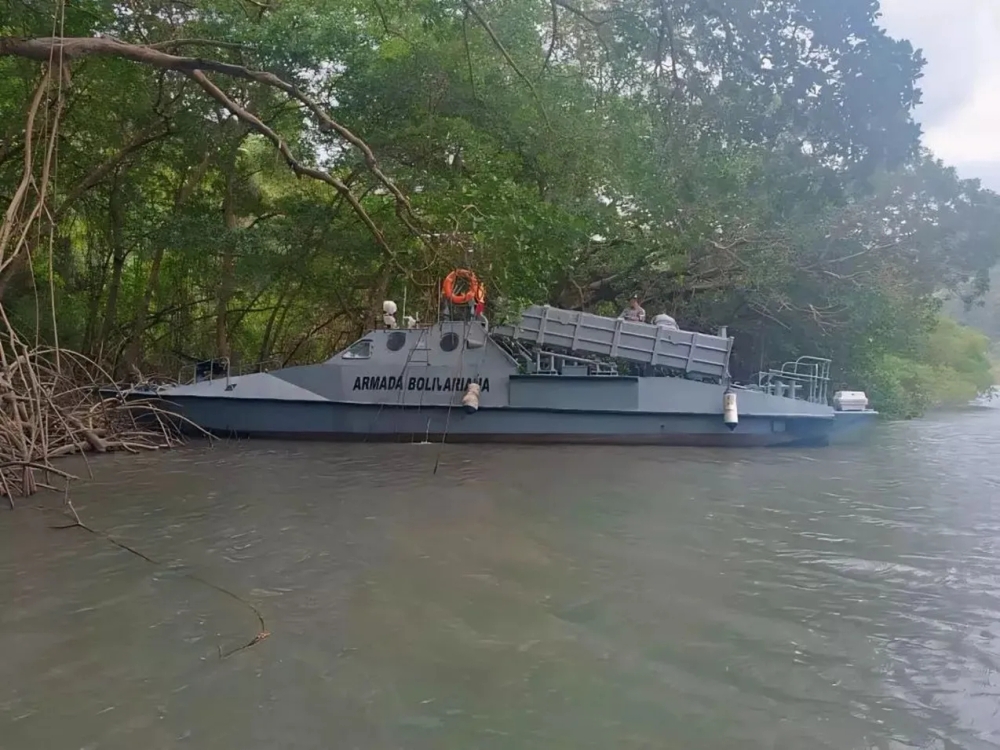Venezuela's Maritime Threat: Strategic Implications for Regional Stability
Published
- 3 min read

Venezuela’s Military Buildup and Its Strategic Partnerships
In recent years, Venezuela has strategically aligned itself with adversaries of the United States, notably Iran, to counterbalance U.S. influence in Latin America. This partnership transcends conventional diplomacy, evolving into a robust military collaboration. The acquisition of Peykaap-III-class missile boats from Iran highlights Venezuela’s commitment to unconventional warfare, akin to tactics employed by Iran and its proxies in the Middle East.
These developments signify a shift in regional power dynamics and raise alarms about potential threats to critical maritime routes, particularly the Panama Canal Zone—a vital artery for global trade.
The Strategic Purpose of Peykaap-III-Class Missile Boats
Venezuela’s acquisition of Peykaap-III-class missile boats, modeled on North Korea’s IPS-16 fast-attack craft, underscores its ambition to enhance its maritime capabilities. These vessels are tailored for hit-and-run tactics, making them ideal for disrupting international shipping.
Key specifications of the Peykaap-III include:
- Length: 57 feet; Beam: 12 feet; Draft: 2 feet
- Top Speed: 60 miles per hour, powered by dual diesel engines
- Armament: Anti-ship missiles (Kowsar with a range of 12 miles, Nasr with a range of 21 miles), lightweight torpedoes, and heavy-caliber machine guns
These boats’ deployment around the Gulf of Paria, near Guyana, signals Venezuela’s intent to dominate critical maritime routes. Their presence near the Panama Canal mirrors tactics used by Iranian proxies in chokepoints like the Red Sea and the Strait of Hormuz, threatening to destabilize a critical economic lifeline.
The Growing Influence of Iranian Warfare Tactics in Latin America
Venezuela’s partnership with Iran is emblematic of a broader strategy to replicate Iranian asymmetric warfare techniques. These include leveraging fast-attack craft to disrupt global shipping and challenge larger naval powers. Iran’s provision of the Peykaap-III-class boats illustrates the depth of their alliance, which is not limited to military cooperation but extends to the sharing of operational strategies.
This alliance further complicates U.S. efforts to maintain stability in Latin America. By adopting Iran’s unconventional methods, Venezuela positions itself as a disruptor capable of undermining U.S. influence while exerting pressure on its neighbors.
Implications for the Panama Canal Zone
The Panama Canal, a strategic chokepoint for global commerce, is increasingly vulnerable to potential Venezuelan aggression. Echoing the Houthis’ disruption of Red Sea shipping lanes, Venezuela’s activities near the canal could pose a significant threat to international trade.
U.S. intelligence has already observed Peykaap-IIIs in Venezuelan waters, suggesting preparations for broader regional ambitions. These maneuvers underline the necessity for heightened vigilance and a robust response from the United States to safeguard its geostrategic interests.
The Broader Geopolitical Context
Venezuela’s actions are part of a larger strategy to roll back U.S. influence in its backyard. By aligning with Iran and other adversaries, Caracas seeks to counterbalance American dominance in the Western Hemisphere. Its maritime buildup signals a desire to project power beyond its immediate borders, complicating regional stability.
The United States, while possessing superior naval capabilities, must address the asymmetric threats posed by Venezuela’s fleet. Neglecting this challenge risks allowing Venezuela to exploit vulnerabilities in key maritime routes, jeopardizing economic and security interests.
Conclusion: A Call for Strategic Focus
Venezuela’s acquisition of Peykaap-III-class boats and its alliance with Iran highlight an emerging threat to the stability of Latin America. As these developments unfold, the United States must prioritize securing the Panama Canal Zone and countering Venezuela’s disruptive ambitions.
By failing to address this growing challenge, the U.S. risks allowing a regional power to emulate the destabilizing tactics of the Middle East, with profound implications for global trade and security.
Proactive engagement, bolstered by regional partnerships, will be essential to deter Venezuela’s attempts to undermine maritime security and U.S. influence in Latin America.
